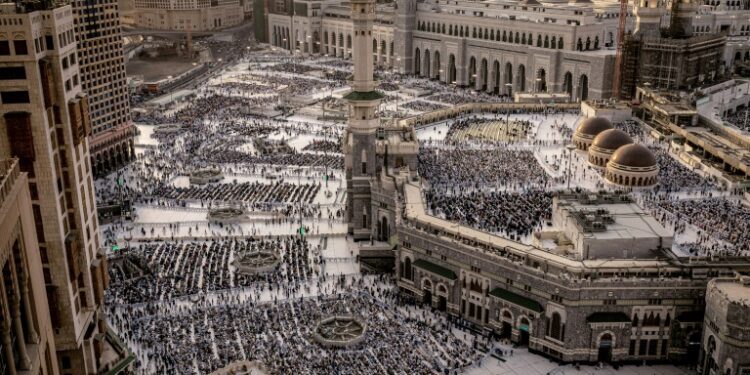The ongoing conflict in the Gaza Strip and Israel’s control over the Rafah crossing into Egypt have prevented a significant number of Palestinians from participating in the annual Hajj pilgrimage this year. According to the Palestinian Ministry of Endowments, which oversees religious affairs in Gaza, 2,500 Palestinians have been unable to make the journey to Mecca and Medina for the Hajj.
The ministry’s spokesperson, Ikrami Al-Mudallal, stated that this represents a “clear violation of religious freedom” for the affected Palestinians. He explained that the conflict has disrupted the ministry’s ability to complete the necessary preparations for the Hajj, such as arranging transportation within Egypt and Saudi Arabia, as well as securing accommodations for the pilgrims in the holy cities.
The closure of the Rafah crossing, the only access point between Gaza and Egypt, has been a major obstacle. This crossing is a critical gateway for Palestinians in Gaza who wish to travel outside the enclave, including for the Hajj pilgrimage. With the crossing largely shut down due to the ongoing hostilities, 2,500 would-be pilgrims from Gaza have been prevented from making the journey. Al-Mudallal noted that the 2,500 individuals who have been unable to participate in the Hajj this year account for 38% of the total 6,600 Palestinian pilgrims. This underscores the significant impact that the conflict and the restrictions on movement have had on the ability of Palestinians, particularly those in Gaza, to fulfill this important religious obligation.
The Hajj is one of the five pillars of Islam and a once-in-a-lifetime duty for able-bodied Muslims who can afford the journey. For many Palestinians, especially those in Gaza, the Hajj pilgrimage is an essential spiritual and cultural experience that they have been unable to access due to the challenging circumstances in the region.
The ministry’s statement highlights the broader impact of the conflict on the religious and cultural rights of Palestinians. The inability to travel freely and perform important religious rites, such as the Hajj, is seen as a violation of their fundamental freedoms by the Palestinian authorities., The situation in Gaza, which has been under a tight Israeli blockade for years, has had far-reaching consequences for the local population. The ongoing conflict, the restrictions on movement, and the lack of access to essential services and resources have created immense hardship for the people of Gaza, including in the realm of religious observance and practice.
The ministry’s plea for the international community to intervene and ensure the free movement of Palestinians, particularly for the purposes of religious pilgrimage, underscores the importance of upholding the religious rights and freedoms of all individuals, regardless of their geographic location or the political situation in their region.
As the world continues to grapple with the complex and often contentious issues surrounding the Israeli-Palestinian conflict, the plight of the 2,500 Palestinians who have been unable to participate in the Hajj this year serves as a poignant reminder of the human cost of these ongoing tensions and the need for a peaceful resolution that respects the fundamental rights and liberties of all affected populations.
















